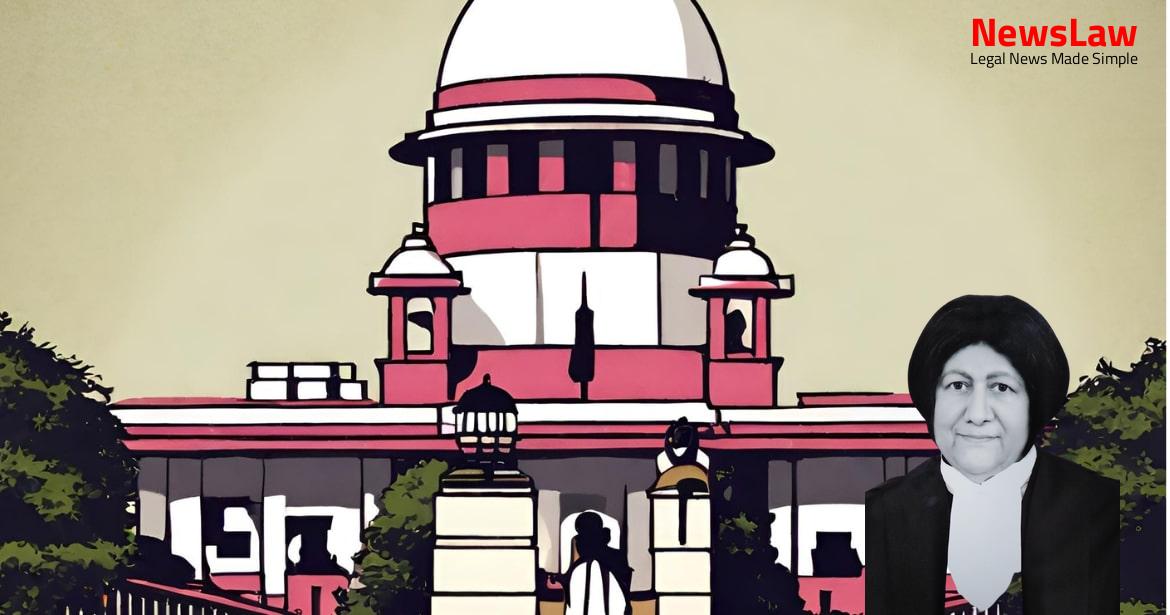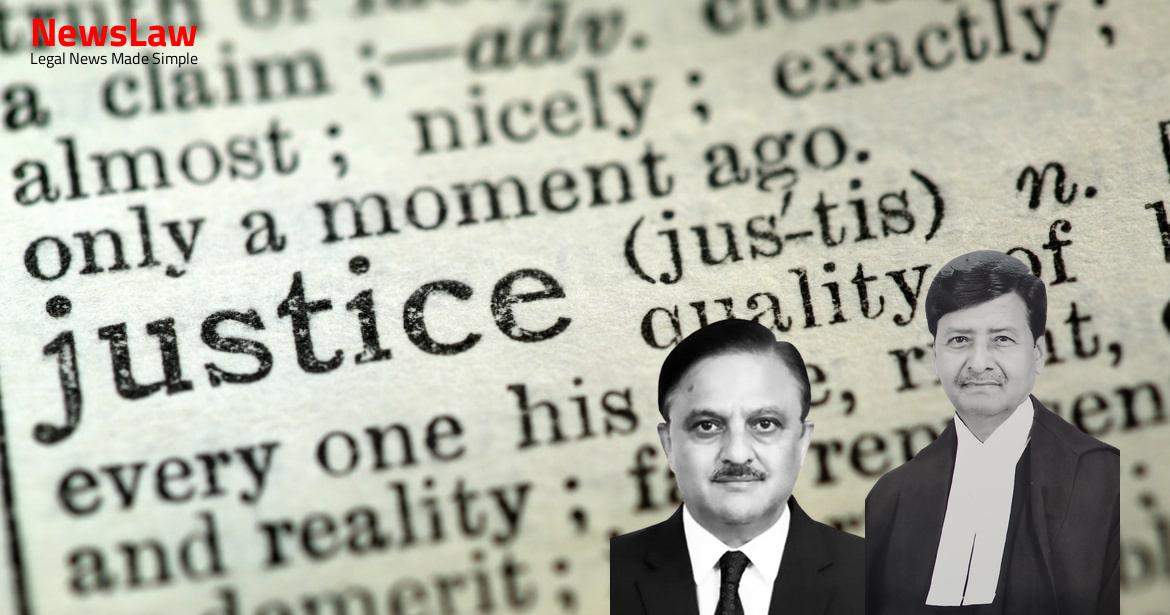In a significant legal case involving disability pension and ex-gratia compensation for military personnel, the Supreme Court of India has delivered a crucial judgement. The case delves into the nuanced criteria for eligibility and entitlement to these benefits, impacting individuals like the appellant. Stay tuned to understand the complexities surrounding the issue and the implications of this ruling.
Facts
- The appellant, a former Havildar in the Indian Army, suffered a stroke during his extended tenure and was re-categorised with an 80% disability.
- The AFT allowed the O A on 2 July 2014, stating that the appellant was entitled to disability pension.
- The AFT ruled in favor of rounding off the disability percentage from 80% to 100% for the appellant.
- In 2016, the appellant sought ex-gratia compensation of Rs 9,00,000 based on a policy circular from 26 December 2011.
- The AFT admitted its error in assuming the rounding off issue was pending before the Court and made corrections.
- An extension of service for two years until 26 December 2012 was granted to the appellant under Army Headquarters policy.
- The appellant’s request for disability pension was lodged with the Armed Forces Tribunal at its Principal Bench.
- The claim regarding rounding off of disability pension was kept open under the assumption that it was pending before the Court.
- The Release Medical Board found that the appellant’s disability was not related to or worsened by military service.
- Appellant was discharged during the extended period after completion of 24 years of service.
- AFT rejected the claim citing various reasons: not raised in earlier proceedings, barred by limitation, and lacking essential requirement of being invalidated on grounds of disability for ex-gratia compensation.
- The appeal challenges AFT’s decision based on interpretation of Pension Regulations for the Army and the circumstances of the appellant’s discharge.
Arguments
- Appellant, who was on an extended tenure of service, was prematurely discontinued and must be treated as invalidated out of service.
- The appellant would be entitled to ex-gratia compensation as per the policy circular dated 26 December 2011.
- The Policy Circular does not intend to provide ex-gratia compensation to every person receiving disability pension.
- The grant of ex-gratia compensation was initially for Army personnel dying in service, later extended to disabled or incapacitated personnel boarded out of service due to military-related disability or war injury.
- The Policy dated 26 December 2011 specifies that rounding off benefits apply only to Armed Forces personnel invalidated out of service.
- Appellant was granted an extended tenure of two years in the army, subject to conditions.
- Retention during the extended tenure is subject to specific conditions, including discharge for those in the permanent low medical category.
- The policy circular did not specifically mention entitlement to ex-gratia for those entitled to disability pension.
- Appellant was discharged in accordance with the conditions of the extended tenure, therefore not eligible for ex-gratia compensation.
Also Read: CRPF Act: Validity of Rule 27 for Compulsory Retirement – Case of Head Constable vs. CRPF
Analysis
- The appellant did not meet the requirement for ex-gratia compensation as he was not boarded out of service due to disability/war injury attributable to military service.
- The appellant was granted disability pension as per Regulation 173-A which applies to individuals discharged due to being permanently in a low medical category.
- The Policy Circular dated 26 December 2011 stipulates specific conditions for ex-gratia compensation, including being disabled in official duties and boarded out due to disability/war injury.
- Regulation 173 and 173-A outline the eligibility criteria for disability pension based on military service-related disabilities or injuries.
- The deeming fiction under Regulation 173-A does not automatically entitle individuals to ex-gratia compensation, but only to disability pension benefits.
- The screening criteria for extension in service for PBOR below officer rank include remaining in medical category ‘AYE’ during the process.
- The individual must be in a temporary low medical category during the Screening Board and throughout the extension period to continue in service.
- The fiction under Regulation 173-A cannot be extended to the policy document dated 26 December 2011.
- The claim for ex-gratia compensation could not have been entertained based on the reasons provided.
- Under Regulation 173-A, the individual is deemed to have been invalidated from service for the purpose of the entitlement rules in Appendix 2 to the Regulations.
Also Read: DAMEPL vs. DMRC: Curative Petition and Arbitral Award Restoration
Decision
- The appeal has been dismissed.
- Any pending application(s) have been disposed of.
Case Title: EX HAV ASHOK KUMAR (S.NO. 6926549M) Vs. UNION OF INDIA
Case Number: C.A. No.-006126 / 2019



